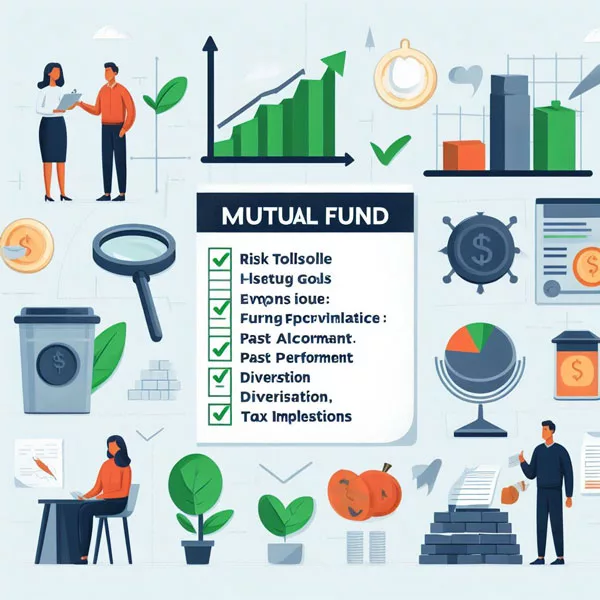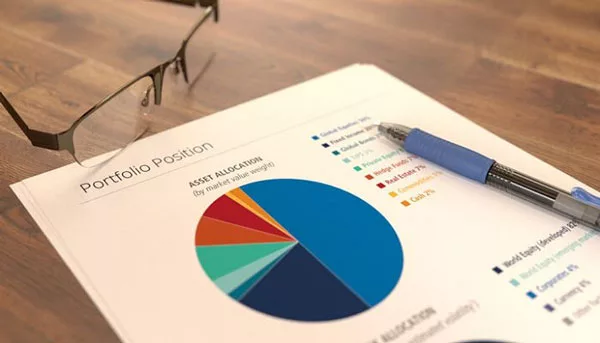Mutual Funds and ETFs: The Ultimate Guide for Seniors Looking to Invest
Table of Contents
Introduction
Mutual Funds and ETFs: What’s the Big Deal?
Today, we’re diving deep into the world of Mutual Funds and ETFs. Trust me, understanding these can be your ticket to a financially secure retirement.
So, grab your reading glasses and let’s get started!
Section 1: What Are Mutual Funds?
Understanding the Basics
Mutual funds are like that potluck dinner your community loves to host. Everyone chips in some money, and a professional (the fund manager) decides where to invest it. You own shares in the fund, which means you get a slice of the pie—both the gains and the losses.
Mutual Funds for Seniors
Now, why should you, as a senior, care about mutual funds? Well, they offer diversification, professional management, and are generally less risky than buying individual stocks. Plus, you can start with a small investment. It’s like bingo, but with better odds!
Section 2: What Are ETFs?
ETFs Demystified
ETF stands for Exchange-Traded Fund. Think of it as a mutual fund’s younger, hipper cousin. ETFs are traded on stock exchanges, just like individual stocks. They offer diversification and usually have lower fees than mutual funds.
Why Choose an ETF Over a Mutual Fund
ETFs are the cool kids on the block for a reason. They offer more flexibility, lower costs, and tax advantages. Plus, you can buy and sell them throughout the day, unlike mutual funds, which only trade once a day after the market closes.
Section 3: Comparing Mutual Funds and ETFs
ETF vs Index Fund
An index fund is a type of mutual fund that mimics a market index like the S&P 500. ETFs can do this too, but they often have lower fees. So, if you’re a fan of “set it and forget it,” an index fund might be your jam. But if you’re looking for lower costs, go with an ETF.
Index Funds vs Mutual Funds
Index funds are a subset of mutual funds. They’re like the vanilla ice cream of investing—simple, straightforward, but effective. Mutual funds offer more flavors but come with higher fees.
ETF vs Mutual Fund Tax
When it comes to taxes, ETFs usually have the upper hand. They’re structured in a way that allows investors to sell without triggering a capital gains tax. Mutual funds, on the other hand, can leave you with a tax bill even if you haven’t sold any shares.
Section 4: Best Practices for Investing
Best Mutual Funds and ETFs for Seniors
There are plenty of options tailored for seniors, like income-generating funds or those with low volatility. Some top picks include the Vanguard Total Stock Market ETF (VTI) and the T. Rowe Price Equity Income Fund (PRFDX).
Section 5: Starting Your Investment Journey
How to Get Started
- Do your research.
- Consult a financial advisor.
- Choose your investment platform.
- Start investing!
Why Not Start a Blog About Your Investment Journey?
Ever thought about sharing your wisdom with the world? Starting a blog can be a great way to document your investment journey and even make some extra cash. In 2023, it’s easier than ever, especially with AI tools that can help you write posts. Wink, wink!
Conclusion
So there you have it, folks! The A to Z on Mutual Funds and ETFs for seniors. Remember, the first step is always the hardest, but once you take it, you’re on the path to a more secure financial future.
Questions & Answers
Q: Is it too late for seniors to start investing?
- A: It’s never too late to start investing. The key is to choose the right investment for your age and risk tolerance.
Q: How much should I invest initially?
- A: This varies based on your financial situation. Always consult a financial advisor before making any investment.
Q: Can I lose money?
- A: All investments come with risks. The key is to diversify and consult professionals.
Q: What’s the minimum amount needed to invest in a mutual fund or ETF?
- A: The minimum investment varies by fund. Some mutual funds have minimums as low as $500, while ETFs allow you to buy even a single share. Always check the fund’s prospectus for details.
Q: Are mutual funds safer than ETFs?
- A: Neither is inherently safer. Both come with market risks, but mutual funds often have a professional manager actively making decisions, which some find reassuring.
- ETFs usually have lower fees, which could mean less drain on your investment over time.
Q: How do I choose between a mutual fund and an ETF?
- A: Consider factors like fees, tax implications, and whether you prefer active or passive management. Consult a financial advisor for personalized advice.
Q: What are the tax benefits of investing in an ETF?
- A: ETFs are generally more tax-efficient due to their structure, allowing you to defer capital gains taxes until you sell your shares.
Q: Can I invest in both mutual funds and ETFs?
- A: Absolutely! Diversifying across both can offer a balanced approach to risk and reward.
Q: How often should I review my investments?
- A: It’s a good idea to review your portfolio at least annually or whenever there are significant changes in your financial situation.
Q: Is it complicated to start a blog about my investment journey?
- A: Not at all! With platforms like WordPress and AI tools to assist you, starting a blog in 2023 is easier than ever. Plus, it’s a fantastic way to share your wisdom and potentially make some extra income.
Q: What are the fees associated with mutual funds and ETFs?
- A: Mutual funds often have higher fees that can include sales charges and management fees. ETFs usually have lower fees but may include brokerage commissions. Always read the fine print!
Q: Can I withdraw my money whenever I want?
- A: For most mutual funds, you can sell your shares back to the fund at any time. ETFs can be sold on the stock market, offering more flexibility. However, some funds may have redemption fees or other charges.
Q: How do I keep track of the performance of my investments?
- A: Most investment platforms offer dashboards where you can monitor performance. You can also use third-party tools or consult your financial advisor for detailed analysis.




